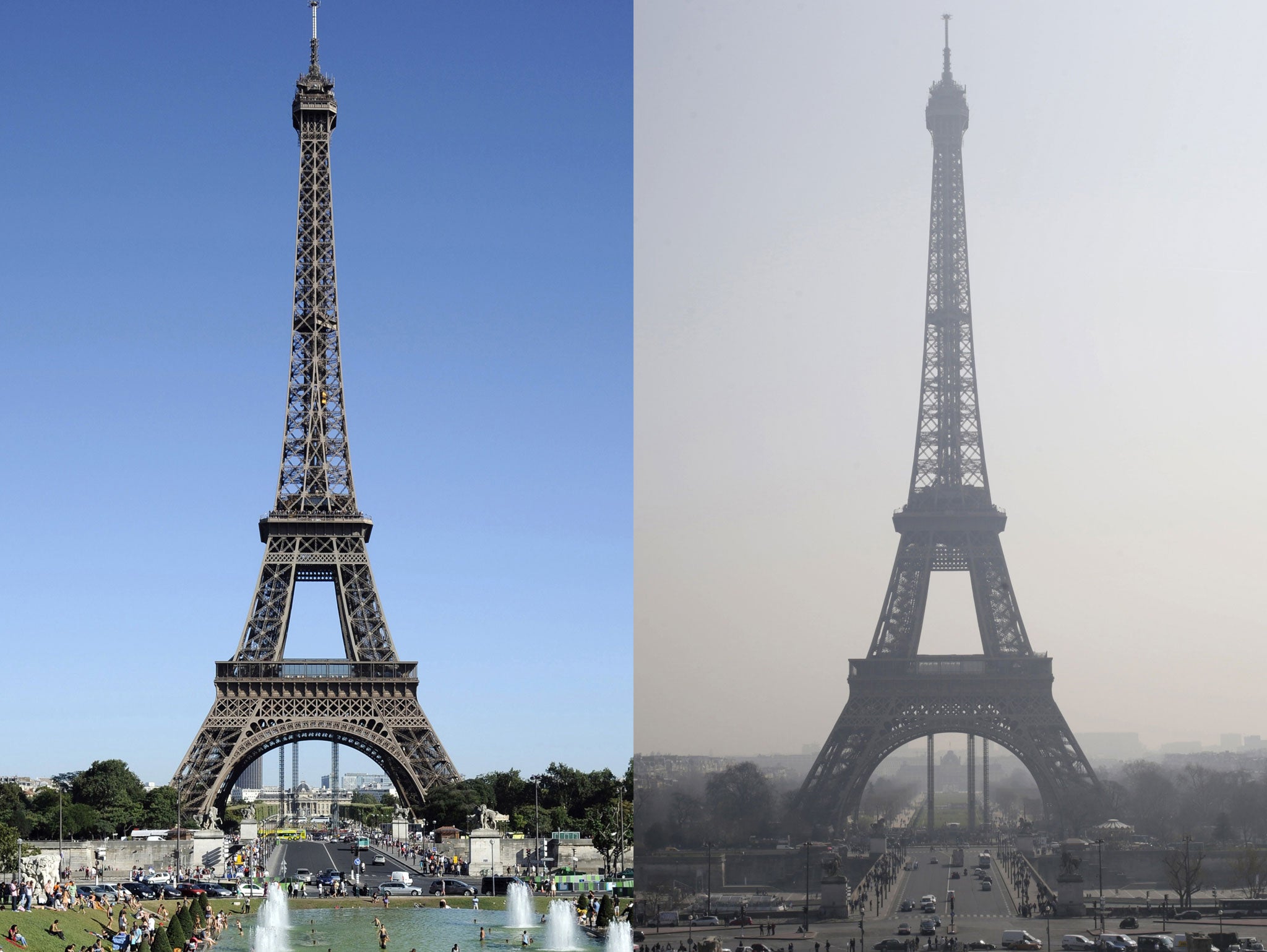In praise of smog: Why the fumes over Paris and Beijing can be secretly, cautiously celebrated
There's a silver lining to these toxic clouds

Your support helps us to tell the story
From reproductive rights to climate change to Big Tech, The Independent is on the ground when the story is developing. Whether it's investigating the financials of Elon Musk's pro-Trump PAC or producing our latest documentary, 'The A Word', which shines a light on the American women fighting for reproductive rights, we know how important it is to parse out the facts from the messaging.
At such a critical moment in US history, we need reporters on the ground. Your donation allows us to keep sending journalists to speak to both sides of the story.
The Independent is trusted by Americans across the entire political spectrum. And unlike many other quality news outlets, we choose not to lock Americans out of our reporting and analysis with paywalls. We believe quality journalism should be available to everyone, paid for by those who can afford it.
Your support makes all the difference.It is supposed to be spring in Paris, but even as temperatures soar, the arrival of a dense, miserly smog is keeping residents indoors and out of spirits. Windows open briefly. The cloud is so thick that hotels which might normally offer a romantic view of the Eiffel Tower can now only promise lovers the sight of a tall, grey smudge. Measures are being taken. Today, half of the city’s cars were barred from the road by Parisian authorities, as muggy conditions failed to disperse the mostly diesel fumes they pump out into the air – a ban that will continue until the smog lifts. It is, for almost everyone, a nightmare. Everyone, in fact, except the environmentalists.
In terms of public policy, the arrival of smog has upsides. The qualities that make this toxic fog such a pain to live under also offer something of a silver lining. Residents get restless. And whether they mean to or not, anyone who objects to the smoggy flavour at the back of their throat is also objecting – by extension – to the burning of extraordinary amounts of fossil fuels, by Citroens on the one hand, but perhaps more damagingly by heavy industry. For a brief spell, everyone can see, taste and feel one small, gritty effect of the forces that are causing climate change. Even President Hollande must today wade his way to work through an atmosphere carrying double the safe rate of dangerous PH10 particulates.
A burst of climate action in Paris, of course, will not last for long. Parisians might lose some of that notoriously short temper should the right to sit in a traffic jam, in the safety of your own car, not be returned within a week. Moreover, France’s economy is in dire enough straits without further costly attempts to curb emissions: in October last year, a green tax on lorry transport was dropped, after violent demonstrations by truck drivers in Brittany. The Socialists will not retain power in a hurry by promising cleaner air a decade or two down the line.
But smog – albeit at a dear cost – has led to stronger environmental legislation in the past. 12,000 civilian deaths were attributed to the 1952-3 ‘great smog’ in London, which darkened the sun for a week. Masks were issued, but they were useless, and by 1956 the Government had introduced a law requiring major reductions in the burning of coal – and the so-called ‘pea-souper’ was sieved from London skies.
Though few have spotted it so far, air pollution in the UK is once again reaching worrying levels. The EU will hand Westminster a £300 million fine should it fail to meet agreed targets to reduce the amount of atmospheric nitrous dioxide (N02) – a gas accused of causing 29,000 premature deaths a year. And as sunglasses returned to the streets of the capital this weekend, pollution over Greater London simultaneously reached level 9 out of 10 on an official scale.
If hopes that the Government would be ‘the greenest ever’ have proved largely false, all is not lost. In China – the world’s top polluter - smog is harder to ignore. A day on the streets of Beijing equates to smoking 21 cigarettes, and from time to time children are prevented from playing outside. The growing furore led China’s Premier to last week claim that “we will fight pollution with the same determination with which we battled poverty”. Already, China is the world’s largest investor in green energy. Whether its attempts to cut out fossil fuels are more than window-dressing we cannot yet know. But if it does succeed, the smog currently “rubbing its back” over citizens’ window-panes, as T S Eliot famously put it, will have played a noteworthy part.
Join our commenting forum
Join thought-provoking conversations, follow other Independent readers and see their replies
Comments